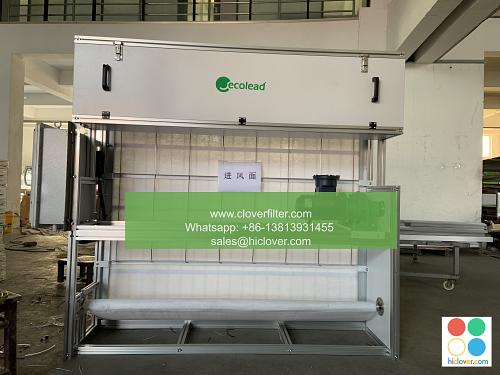Air Filter Survey Basics: What You Need to Know

Air filters are a crucial component of indoor air quality (IAQ) management, and a thorough air filter survey is essential to ensure the optimal performance of Heating, Ventilation, and Air Conditioning (HVAC) systems. In this article, we will delve into the basics of air filter surveys, highlighting various application areas, and discussing key concepts such as MERV ratings, air filter efficiency, and indoor air quality.
Why Conduct an Air Filter Survey?
Conducting a comprehensive air filter survey is vital to identify areas of improvement in your HVAC system, ensuring the delivery of clean and healthy air to occupants. A well-designed air filter survey helps to:
* Improve indoor air quality (IAQ) by reducing airborne contaminants and pollutants
* Increase the energy efficiency of HVAC systems, leading to cost savings and reduced environmental impact
* Prolong the lifespan of HVAC equipment and air filters, minimizing maintenance and replacement costs
* Enhance occupant health, productivity, and comfort by providing a clean and healthy indoor environment
Air Filter Types and Applications
Air filters come in various types, each designed for specific applications and use cases. Some common types of air filters include:
* HEPA filters: High Efficiency Particulate Air filters, capable of capturing 99.97% of particles as small as 0.3 microns, commonly used in hospitals, cleanrooms, and pharmaceutical applications
* Activated carbon filters: Designed to capture gases, odors, and chemicals, often used in industrial applications, commercial kitchens, and air purification systems
* Pleated filters: A cost-effective option for residential and commercial applications, offering a balance between air filter efficiency and pressure drop
Understanding MERV Ratings and Air Filter Efficiency
MERV ratings (Minimum Efficiency Reporting Value) are a standard measure of air filter efficiency, ranging from 1 to 20. A higher MERV rating indicates a more efficient air filter, capable of capturing smaller particles and contaminants. When selecting an air filter, it’s essential to consider the following factors:
* Particle size: The size of particles the air filter can capture, measured in microns
* Airflow rate: The volume of air the filter can handle, measured in cubic feet per minute (CFM)
* Pressure drop: The resistance to airflow created by the filter, measured in inches of water gauge (in.wg)
Best Practices for Air Filter Surveys and Maintenance
To ensure the optimal performance of your HVAC system and air filters, follow these best practices:
* Regularly inspect and replace air filters to prevent decreased air filter efficiency and increased energy consumption
* Monitor indoor air quality using air quality sensors and indoor air quality monitoring systems
* Conduct thorough air filter surveys to identify areas of improvement and optimize air filter selection and maintenance
* Consider energy-efficient and sustainable air filter options, such as eco-friendly air filters and recyclable air filters
In conclusion, a comprehensive air filter survey is crucial to ensure the optimal performance of HVAC systems and maintain good indoor air quality. By understanding the basics of air filter surveys, including MERV ratings, air filter efficiency, and application areas, you can make informed decisions about air filter selection, maintenance, and replacement, ultimately improving the health, comfort, and productivity of occupants. You haven’t provided a question or topic for discussion. What would you like to talk about?

